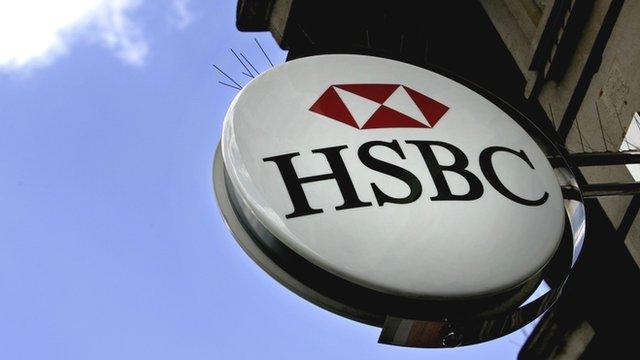HSBC scandal shows 'dilly dallying' on tax crackdown
- Published
- comments
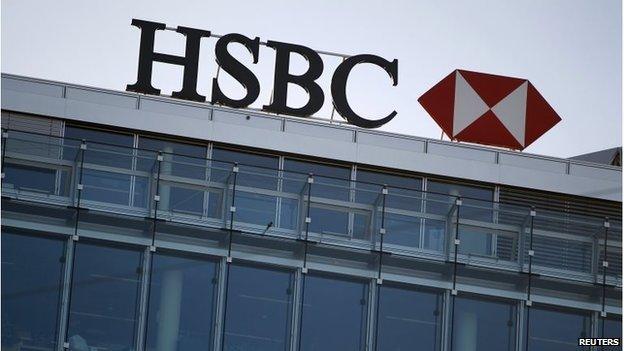
For HSBC, revelations that it helped wealthy clients in Switzerland evade tax is part of a litany of scandals for it and other banks.
Documents seen by Panorama show bankers helped clients evade tax and offered deals to help tax dodgers stay ahead of the law.
But for some watching the lender and its peers, it is a case study of a much wider problem of governments not cracking down with enough urgency on dodged tax, and a useful lesson on the short arm of international law.
John Christensen, executive director of Tax Justice Network, says HSBC was not alone in assisting rich clients in paying less tax. "It's one among a lot of very big players," he says.
The problem for those collecting tax is one of information exchange, he says. The UK and other governments have been "dilly dallying" on this front, he adds.
'Common sense forgotten'
Being able to parcel wealth into offshore companies whose owners are hidden means knowing what someone has really earned - and therefore how much tax they should pay - is very difficult.
The foundation of this scandal is similar to the recent currency trading scandal, says Manchester Business School's Tom Kirchmaier, a bank governance expert. Bad behaviour that made a lot of money became the norm for a large number of firms.
"It goes really well for a while, and everyone pushes it until the system breaks," he says. "Everyone is doing it, it becomes an acceptable norm and everyone forgets common sense."
HSBC's Swiss accounts in numbers
106,000
clients with Swiss bank accounts
203
countries involved
-
$118bn total assets held in Swiss accounts
-
11,235 clients from Switzerland held $31.2bn
-
9,187 clients from France held $12.5bn
-
7,000 clients from UK held $21.7bn
However, it has not been a good few years for HSBC, as it cleans up the mess caused by the excesses of the boom years to 2007.
In 2012, the bank paid a $1.9bn (£1.25bn) settlement after it failed to prevent drug cartels and arms dealers laundering money in North America. And last year, it paid a $618m settlement to regulators in connection with traders' attempted rigging of currency rates.
In the UK, the lender has set aside about £2.53bn to repay people mis-sold payment protection insurance (PPI) and it is braced to repay some small businesses who should never have been sold so-called interest rate hedging products - complex bets on which way interest rates on their loans might go - to the tune of about £616m.
HSBC is not the only bank to suffer these scandals though. UK rivals Barclays, RBS and Lloyds have all been forced to repay more money to PPI purchasers and some businesses who were left with punitive rates through hedging. Regulators have also fined a handful of international firms for foreign exchange rate manipulation.
And in 2013, Switzerland's oldest bank closed permanently after pleading guilty in a New York court to helping Americans evade their taxes.
Wegelin, which was established in 1741, admitted to allowing more than 100 American citizens to hide $1.2bn from the Internal Revenue Service for almost 10 years.
Addressing risk
Another factor for HSBC though was its stellar growth during the period, mainly through acquisition, says Dr Kirchmaier.
It expanded its private banking business in 1999 through a $9.9bn purchase of Republic New York, and in 2002 bought its Mexican business (which was linked to its fines for money laundering from US regulators).
The fact that businesses at HSBC at the time were often run as country-centred fiefdoms, according to sources close to the bank, may have helped understand local customs, but didn't assist in following cross-border rules.
For its part, HSBC has hired nearly 10,000 people in compliance and risk in the last four years, and has also sold or shut 75 businesses since 2011.
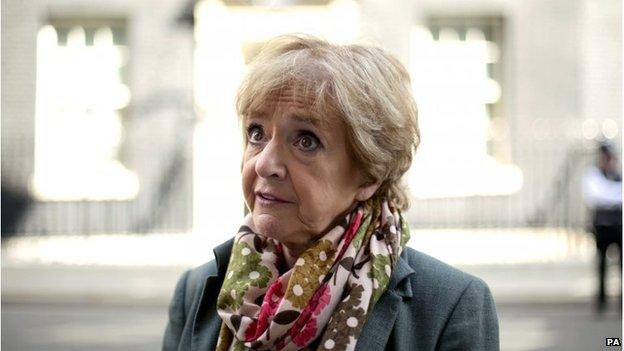
"HSBC has acted outrageously," said Margaret Hodge, Public Accounts Committee chair and a Labour MP
"HSBC's Swiss Private Bank began a radical transformation in 2008 to prevent its services from being used to evade taxes or launder money," said Franco Morra, chief executive of HSBC's Swiss Private Bank.
"New senior management have comprehensively overhauled the business, including closing the accounts of clients who did not meet our high standards and ensuring we have strong compliance controls in place.
"These disclosures about historical business practices are a reminder that the old business model of Swiss private banking is no longer acceptable."

HSBC Swiss timeline
2005: European Savings Directive is introduced for Swiss banks to take any tax owed from undeclared accounts and pass it to the tax authorities
2007: Thousands of accounts from HSBC's private bank in Switzerland leaked by a whistleblower
2010: HMRC is given the leaked data and identifies 1,100 people who had not paid their taxes
2013: French authorities assess the stolen data and conclude that 99.8% of their citizens on the list were probably evading tax

Still, for Margaret Hodge, Public Accounts Committee chair and a Labour MP, authorities have been slow on the uptake in this case.
"HSBC has acted outrageously," she said. "In other countries, HSBC is being prosecuted - in the United States, even in Argentina, and in a number of European countries. Why is HSBC here not being prosecuted?"
One problem regulators and authorities in the UK face is jurisdiction, says Dr Kirchmaier.
"In this case, we don't need more regulation because I think we can all agree this is wrong," he says. "The answer is the regulator in Switzerland does its job. The UK one has no jurisdiction."
- Published10 February 2015
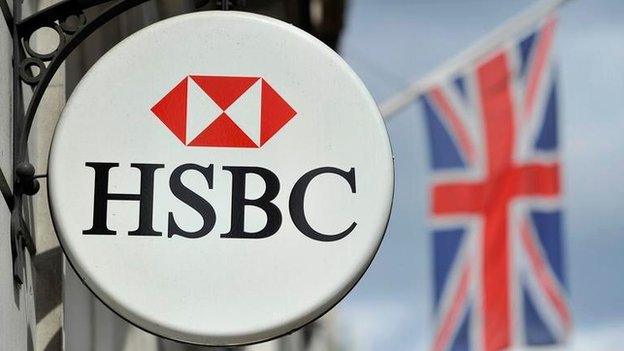
- Published9 February 2015
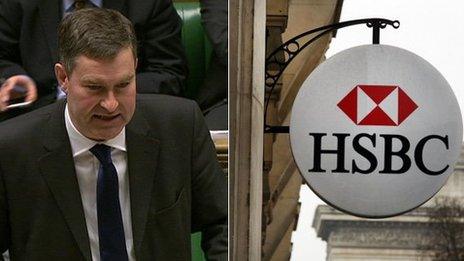
- Published9 February 2015
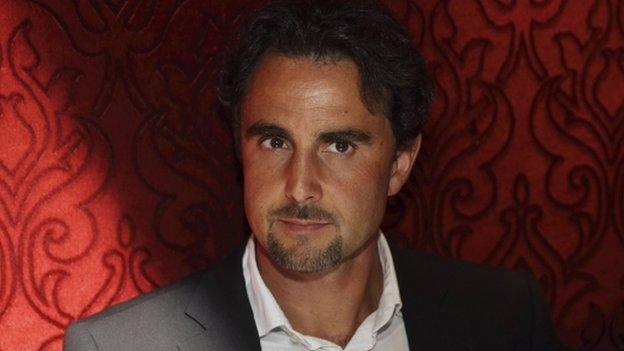
- Published9 February 2015
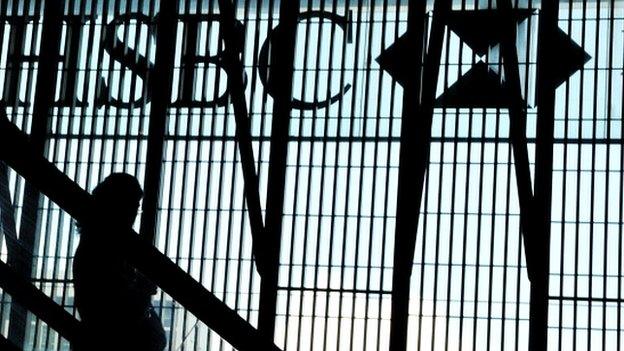
- Published9 February 2015

- Published9 February 2015

- Published9 February 2015
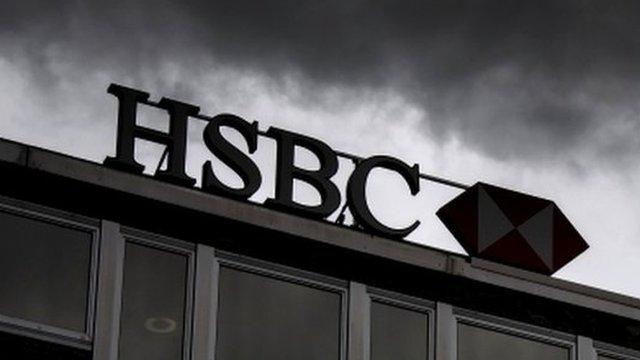
- Published9 February 2015
